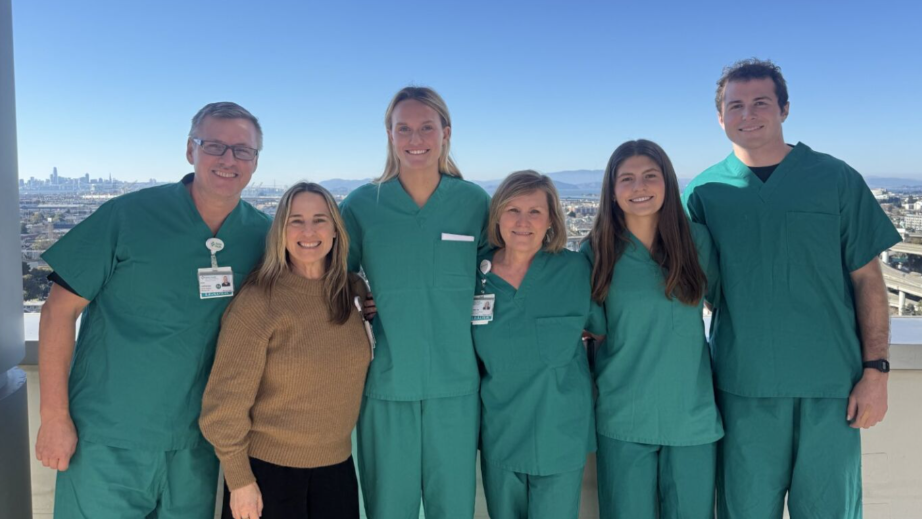By Nicole Young and Karin Fleming, Vitals contributors
The success of Sutter’s Metabolic Wellness Program, which has served more than 2,000 people since 2020, will now rise to the next level through a cutting-edge collaboration with Rice University.

Dr. Ron Sinha, founder of Sutter’s Metabolic Wellness Program.
“Sutter’s acclaimed team of researchers will work with top data scientists at Rice, analyzing data captured from Metabolic Wellness Program study participants’ continuous glucose monitors (CGMs) to give us important insights,” confirms Dr. Ron Sinha, an internal medicine physician at Sutter Health who founded the program.
Critical health challenges posed by metabolic syndrome—a cluster of conditions that increases risk of heart disease, stroke and diabetes—will be addressed in the planned, six-month study by combining Sutter’s clinical expertise with Rice’s strengths in data science and engineering.
“Our goal is to not only improve patient outcomes by developing innovative and personalized healthcare solutions but also to help close care gaps in underserved communities and contribute to equitable, global advancements in health and well-being,” commented Ashutosh Sabharwal, Rice’s Ernest Dell Butcher Professor of Engineering. The Precise Advanced Technologies and Health Systems for Underserved Populations Engineering Research Center at Rice is providing infrastructure to help support the study.
Science for Better Health Solutions
Shayna Siri, a Danville, Calif., resident, joined Sutter’s Metabolic Wellness Program to understand what was happening inside her body. After the birth of her first child in 2021, Siri experienced severe exhaustion, constant hunger and rapid weight gain. “I’d never dealt with anything like this. I was at a point where I didn’t fit into anything I owned,” explains the 37-year-old mother of two young sons. “I thought I knew how to get it under control, but I really didn’t.”
Siri began wearing a CGM to document fluctuating glucose levels visible on a smartphone app, as she ate, exercised and slept. She kept her own logs on meals, rest and even stress. Weekly webinars and health education videos revealed why her glucose levels were continually changing. Her insulin resistance, a metabolic disorder, affects 40-50% of U.S. adults, and is the root cause for conditions like Type 2 diabetes, gestational diabetes and obesity.
With program support, she incorporated lifestyle changes that helped her safely lose weight and increase energy. “It’s kind of amazing that when you do the right things for your body, it does well for you,” comments Siri. “It was the best investment I’ve ever made.”
A Whole-Person-Focused Approach to Health and Wellness
“Sutter is the largest community health system to implement and then test a metabolic wellness program of this size, so the potential impact from this research is enormous,” notes Dr. David Kerr, a senior scientist at Sutter’s Center for Health Systems Research who leads Sutter’s study with Rice. “We know that populations affected by health inequities often have higher rates of several diseases and illnesses, including diabetes, heart disease and stroke, and cancer. This research will seek to help close knowledge gaps, and we hope it will play a pivotal role as we work to improve health outcomes for our patients, our people and the communities we serve.”

Nancy Brown displays her CGM on her arm.
Research participant Nancy Brown from Redwood City, Calif. was fascinated by using her CGM and watching in real time over eight weeks how her body reacted to what she ate. “I’ve learned that my health is much better when I am paying attention to the numbers, whether that is my A1C (a marker of blood glucose levels), my blood pressure or my weight,” says Brown.
Brown enrolled in the study because she understands first-hand the impact research can make, and the great challenges study organizers face when recruiting subjects. The 64-year-old Director of Behavior Wellness within Sutter Health Greater Silicon Valley has contributed to many of Sutter’s research and innovation projects. Brown acknowledges the important link between health education informed by medical research, and the shift toward whole-person focused, value-based care. “Unless patients are empowered to know how to improve their health and are motivated to do so, we are spitting in the wind,” she adds.

Dr. David Kerr
Turning the Tide on Rising Rates of Diabetes, Heart Disease and Obesity
Dr. Kerr’s study is one example of Sutter’s focus on prevention, proactive management of chronic diseases and whole-person health, and its launch could not come at a more critical time. The CDC notes 38 million Americans have diabetes but one in five don’t know it. Heart disease and stroke are projected to rise more than 11% in U.S. adults, along with key risk factors, like high blood pressure and obesity. The connected costs of these chronic illnesses are expected to triple, totaling $1.8 trillion by 2050, according to the American Heart Association.
Sutter’s new research collaborations with Rice University aim to directly address these serious statistics, in order to reduce the prevalence of these conditions and the related medical and societal toll.
To learn more about Sutter’s Metabolic Wellness Program, click here.
NOTE: This content is not intended to be a substitute for professional medical advice, diagnosis or treatment. Always seek the advice of your physician or other qualified health provider with any questions you may have regarding a medical condition. Never disregard professional medical advice or delay in seeking it because of something you have read on this website.





